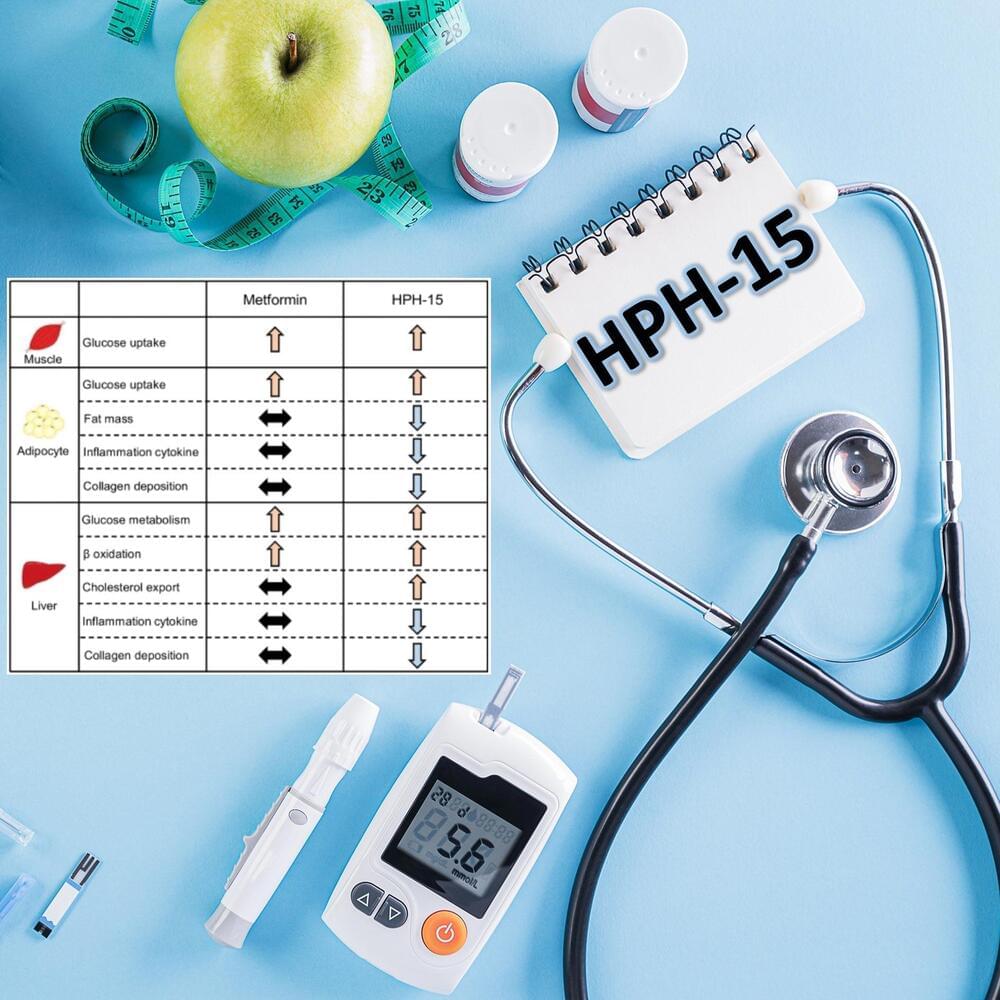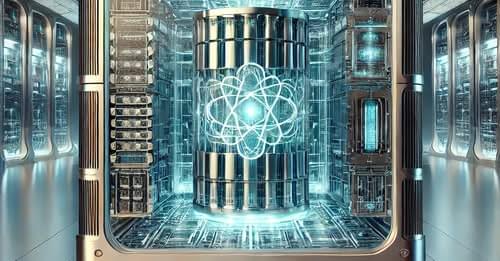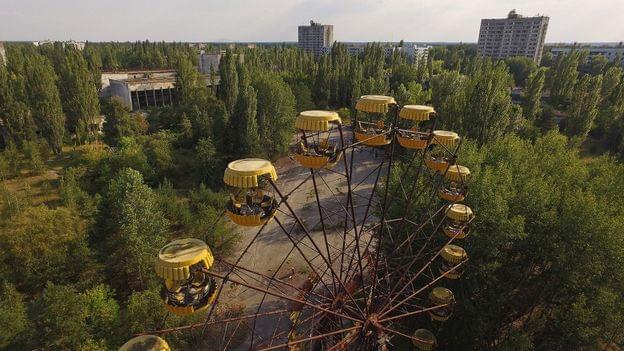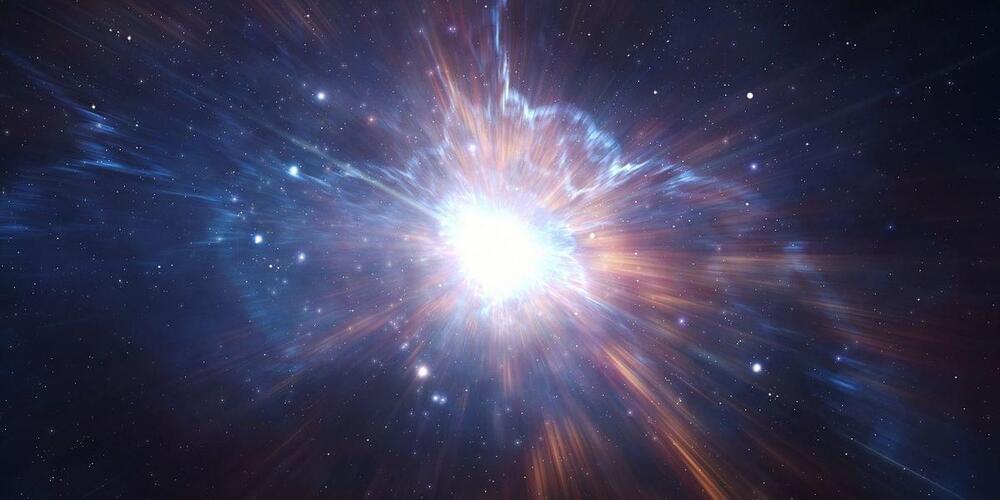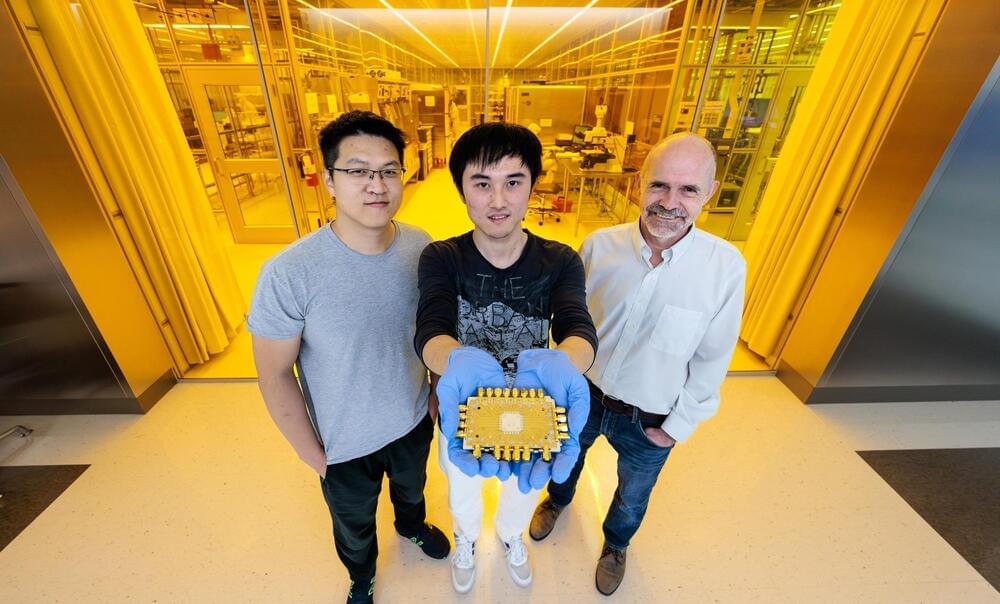Dec 16, 2024
Better Than Metformin: New Diabetes Wonder-Drug Slashes Fat and Blood Sugar
Posted by Paul Battista in categories: biotech/medical, innovation
HPH-15, a compound developed by Kumamoto University, reduces blood glucose and fat accumulation more effectively than metformin, with added benefits like antifibrotic properties and a safer profile. This innovation may revolutionize diabetes treatment.
Scientists at Kumamoto University have unveiled a novel compound, HPH-15, which has dual effects: reducing blood glucose levels and combating fat accumulation. This breakthrough represents a significant advancement in diabetes treatment innovation.
Type 2 diabetes, a condition affecting millions worldwide, is often accompanied by complications such as fatty liver and insulin resistance, posing challenges for current treatment methods. The research team, led by Visiting Associate Professor Hiroshi Tateishi and Professor Eiichi Araki, has identified HPH-15 as a promising alternative to existing medications like metformin.
